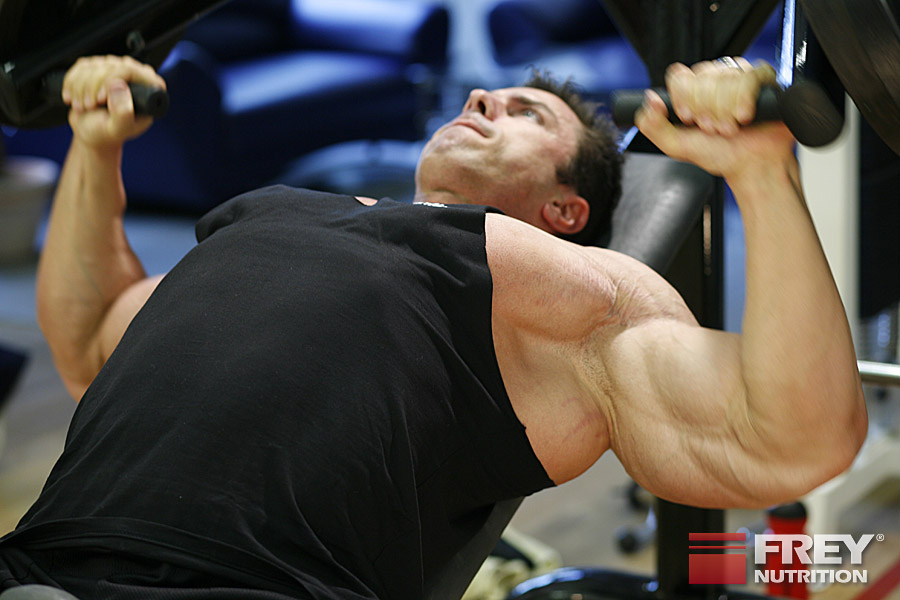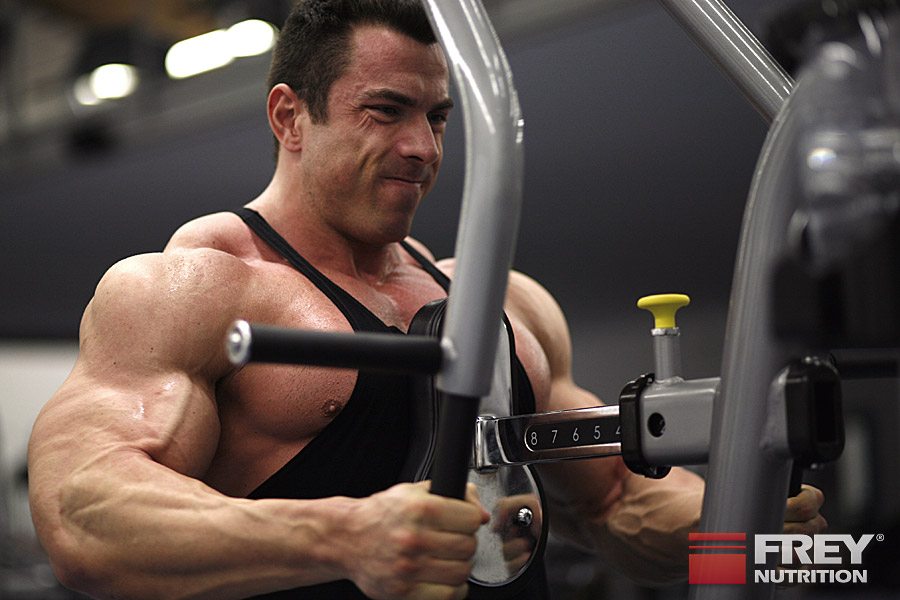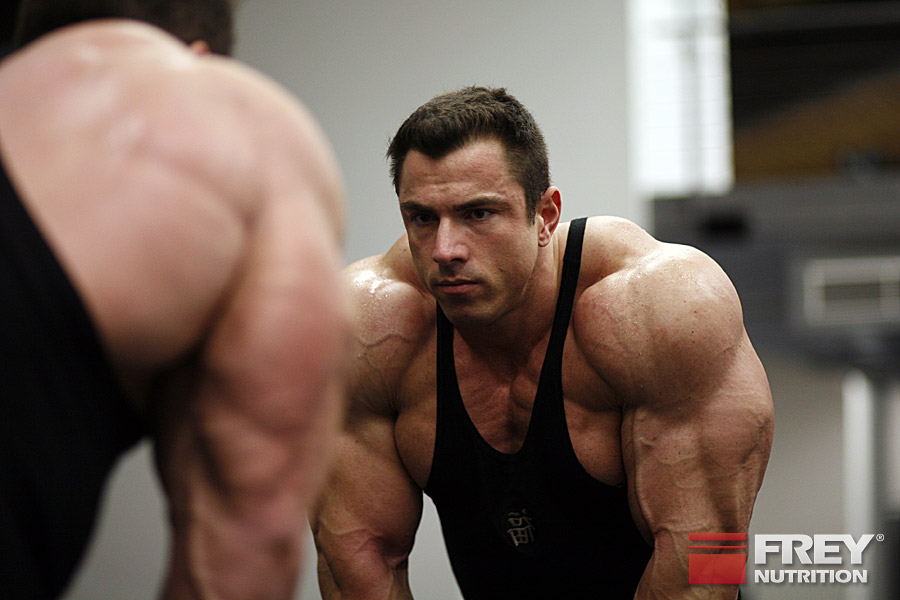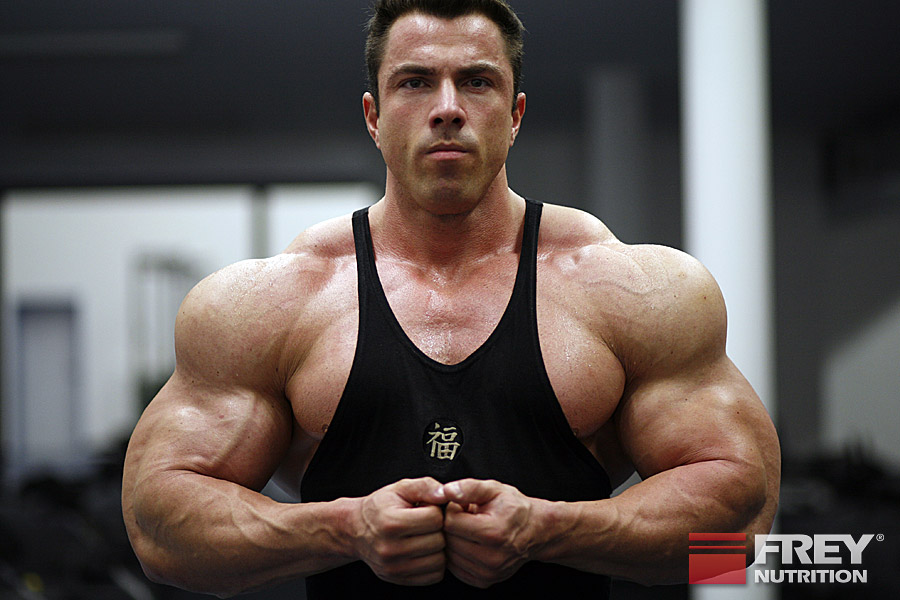ANSWER
!
Strength is only a secondary value in bodybuilding, and of course not necessarily the decisive factor for building muscle mass. Much more important than pure power development is the intensity of training. There are numerous professional bodybuilders who train with very little weight in relation to their body weight and yet still have impressive muscles. I myself have hardly gained any strength in the last five years, but have been able to build more than eight kilos of muscle because my training is always very concentrated and intense.
Basic exercises such as bench presses or squats are best for building strength.
Nevertheless, strength is required to some extent to build muscle. If your main goal is to increase your strength, it is essential to optimize training and nutrition:
I recommend doing work sets of three to six reps for a period of six to eight weeks. You should stick to compound exercises because they are the best for training with heavy weights. The low rep range will allow you to improve your strength component.
In terms of nutrition, if you weigh 85 kilos, you should consume between 3500 and 4000 kilocalories per day. Divided into the individual nutrients, this means:
250 to 300 grams of protein
400 to 500 grams of carbohydrates
70 to 90 grams of fat
If you still feel hungry, you can and should eat additional carbohydrates. This will provide you with enough energy to handle more weight during your workouts.
In order to increase your strength in a targeted manner and to replenish the necessary ATP stores, I recommend the use of
CREATINE MONOHYDRATE or even better
PURE CREATINE . The latter is a little purer and is absorbed very well. The creatine causes ATP to be replenished and stored in your muscle cells. This compound represents the energy reserve of your muscles, so to speak: if your reserves are empty, it is hardly possible to lift much weight. However, if they are full of ATP, you will develop significantly more power and be able to complete more repetitions than before.
An optimal combination with creatine is
D-RIBOSE because it replenishes the depleted ATP stores - especially during the rest phase after training. Studies have shown that D-ribose can increase the ATP level by three to four times, which can mean an increase in strength of ten to 15 percent. This means you recover much faster after a hard training session and can put strain on your muscles again much sooner. Five to ten grams of creatine/CreaPure and five to ten grams of D-ribose directly after training in a post-workout shake are ideal.













